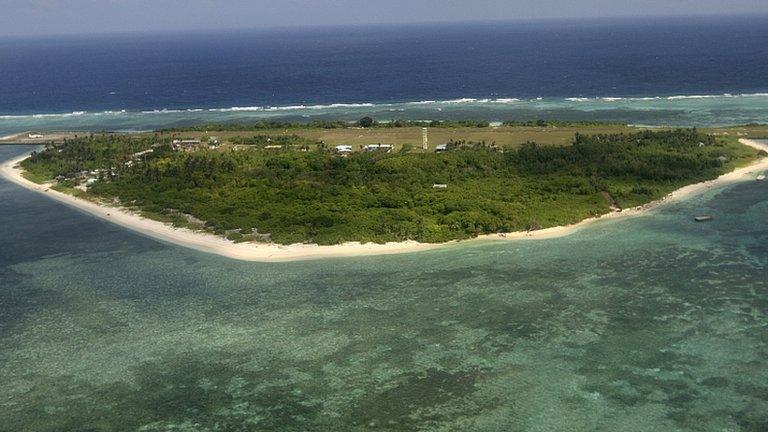Asean talks: US and China pledge to co-operate on Asia
- Published
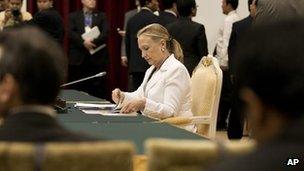
Mrs Clinton says the US will not ''take sides'' in regional disputes in Asia
US Secretary of State Hillary Clinton and her Chinese counterpart Yang Jiechi have said their countries will co-operate on Asia issues.
They are meeting on the sidelines of the Asean forum in Cambodia's capital, Phnom Penh, amid regional tension.
China and Japan disagree over who owns islands in the East China Sea.
Meanwhile, Asean is seeking China's agreement on a code of conduct on disputes in the potentially oil-rich South China Sea.
Mrs Clinton stressed the importance of China and the US working together on sensitive issues.
"I am delighted that we are going to be issuing a joint media note,'' she told the meeting in Phnom Penh. ''It is an important signal that the United States and China not only can but will work together in Asia."
Mr Yang told reporters China was ready to ''enhance'' dialogue with the US and ''expand... common ground''.
"China and US relations have continued to make progress this year," he said.
Foreign ministers of the 10-nation bloc are meeting in the Cambodian capital with counterparts from the region including China, and Mrs Clinton and European Union representative Catherine Ashton.
'Nationalistic rhetoric'
Mrs Clinton urged countries involved in disputes in the South China Sea to "work collaboratively and diplomatically to resolve disputes without coercion, without intimidation, without threats and without use of force''.
The US has no territorial claims in the region and will not ''take sides'' in disputes, she stressed.
"But we do have an interest in freedom of navigation, the maintenance of peace and stability, respect for international law and unimpeded lawful commerce in the South China Sea."
Mrs Clinton arrived in Phnom Penh from Laos where she made history as the first top US diplomat to visit the country in nearly six decades. Before that she travelled to Mongolia and Vietnam.
Meanwhile, a commentary in China's ruling Communist Party newspaper criticised Mrs Clinton for holding up Mongolia as a model for democracy in Asia.
The remarks were widely seen as being indirectly aimed at Beijing.
"Who is the United States to haughtily appraise Asia's democratic position?" said the People's Daily editorial.
China has long bristled at perceived US criticism which it says amounts to foreign interference, says the BBC's Martin Patience in Beijing.
These are also uncertain times in the country, with a-once-in-a-decade leadership change starting later this year. But using fiery nationalistic rhetoric remains a sure-fire way to bolster political credentials, says our correspondent.
Disputed territories
On Wednesday the Japanese and Chinese foreign ministers held talks on the disputed islands in the East China Sea.
Known as Senkaku in Japan and Diaoyu in China, the uninhabited but resource-rich islands are controlled by Japan, but also claimed by China and Taiwan. They have been a longstanding source of tension.
Japan summoned China's ambassador to protest against the appearance of Chinese patrol boats in the area early on Wednesday.
The Chinese foreign ministry said Beijing did not ''accept a representation lodged by the Japanese side over the issue'', state news agency Xinhua reported.
In the South China Sea, China has overlapping territorial claims with several Asean members - the Philippines, Vietnam, Malaysia and Brunei.
Earlier this week, Asean forum ministers adopted key elements of the code of conduct and is now seeking China's agreement.
The Chinese foreign ministry said China would consider the proposals if the conditions were right.
Asean was set up in 1967 by Thailand, Indonesia, Malaysia, the Philippines and Singapore. Brunei joined in 1984, followed by Vietnam in 1995, Laos and Burma in 1997 and Cambodia in 1999.
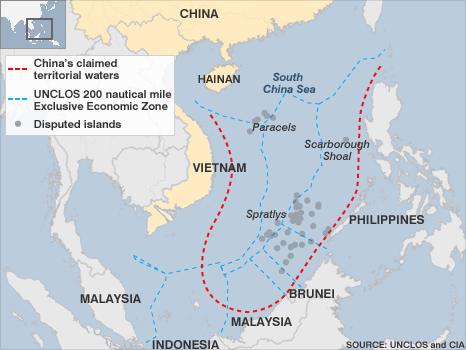
- Published11 July 2012
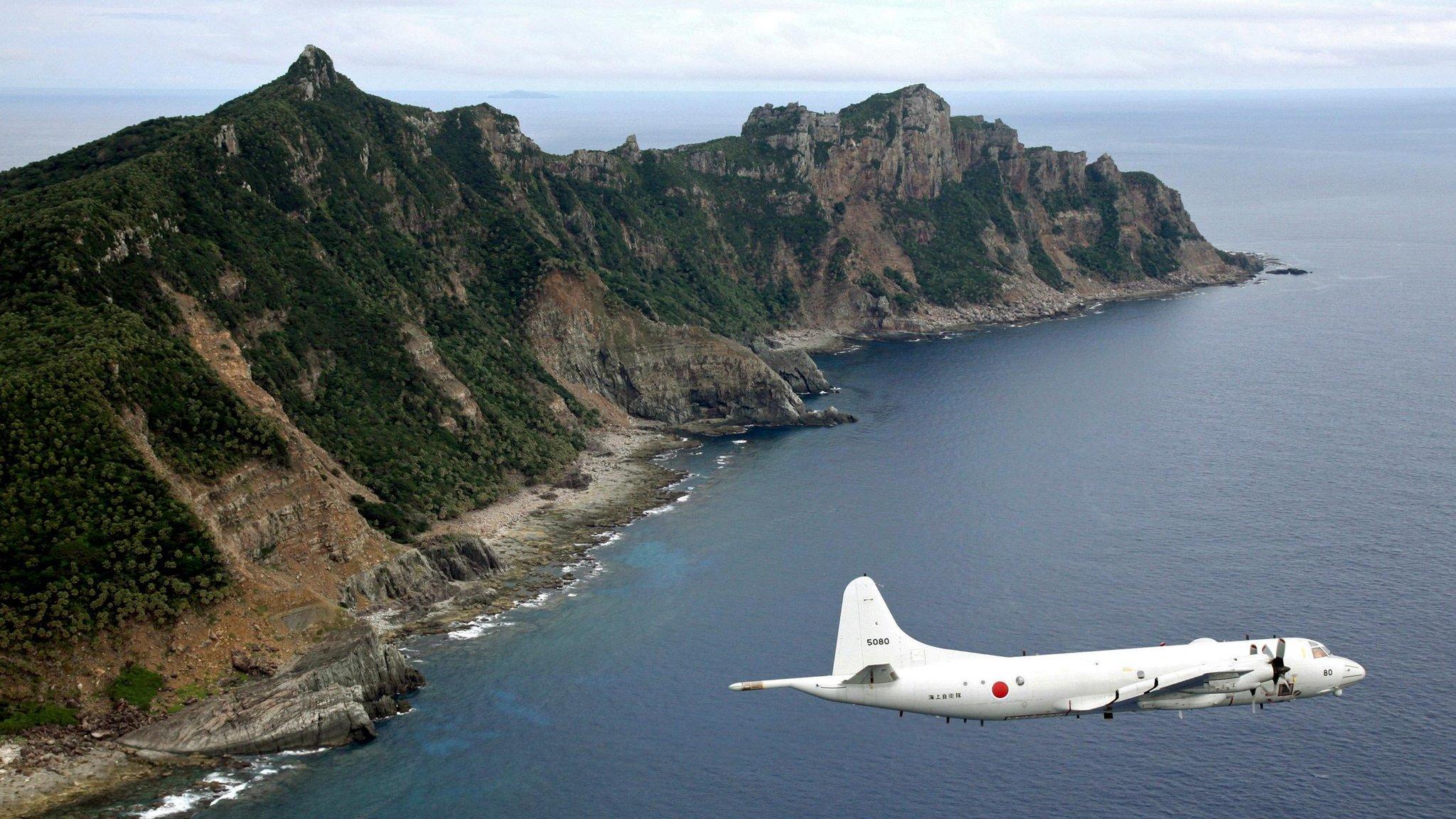
- Published7 July 2023
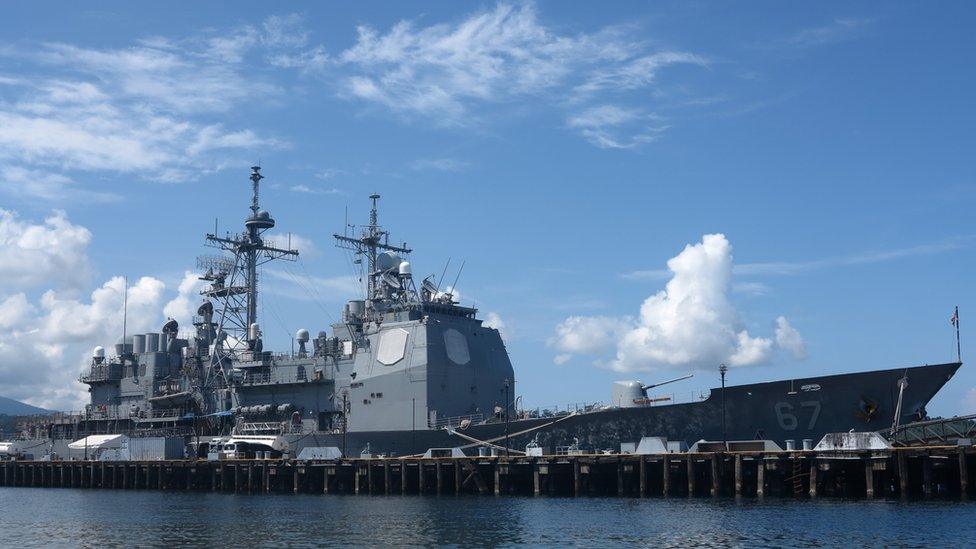
- Published25 May 2012
